The best books by Arab authors in 2019
Looking back on the year, book lovers were spoilt with engrossing fiction novels and searing nonfiction books from new and established writers across the Arab world and diaspora.
While it's well known that Arab authors and poets have been making their mark in English literature for decades now, one can argue this year was somewhat a milestone in terms of the number of high-profile books that were released.
Here's The New Arab's roundup of books – published in English first – by Arab authors in 2019. By no means is this a definitive or exhaustive list – but if you're searching for a new book to read or want to diversify your bookshelf, this is a good place to start.
Fiction
The Parisian – Isabella Hammad
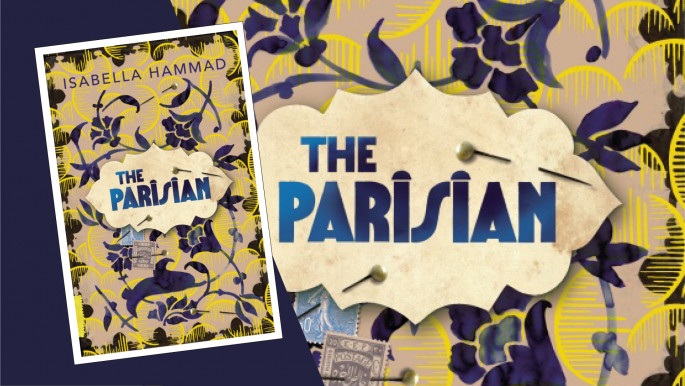 |
|
| Read The New Arab's review here |
Set in France and Palestine during and in the aftermath of World War I, The Parisian is a masterful debut novel by Plimpton Prize winner Isabella Hammad.
The story centres around Midhat Kamal, the Parisian – or al-Barisi – himself who attempts to navigate cultural expectations and his own yearning for belonging against the backdrop of a turbulent, politically-charged era.
Bird Summons is the story of three Arab women – Salma, Moni, and Iman, friends and active members of their local Muslim Women's group – who take a road trip together to the Scottish Highlands.
Their experience and search for freedom challenges them as they embark on a journey of self-discovery while navigating conflicting demands of family, duty, and faith.
The Other Americans – Laila Lalami
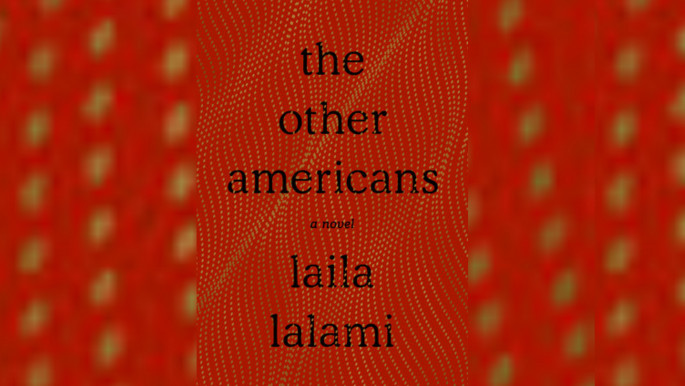 |
|
| Read The New Arab's review here |
The Other Americans is the powerful fourth novel by Pulitzer Prize finalist Laila Lalami.
The story is narrated by nine different characters who are brought together by the suspicious death of Driss Guerraoui, a Moroccan immigrant in a small Californian town, amidst the precarious fault lines of American culture.
When All Else Fails – Rayyan al-Shawaf
When All Else Fails is a dark comedy centred around Hunayn, a Rome and Beirut-educated Iraqi Christian who is living in Florida when 9/11 suddenly upends his life.
Set in the tumultuous aftermath of the attack on the Twin Towers, al-Shawaf's debut novel unpacks themes around religious, cultural and national identities, and tackles the stereotypes that comes with them.
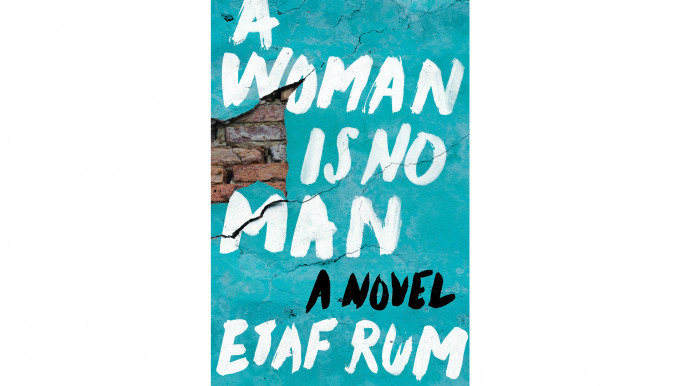 |
|
| Read The New Arab's review here |
A heartbreaking story of three generations of Palestinian-American women – Isra, Deya and Fareeda – trying to find their voice.
Etaf Rum's debut A Woman Is No Man does not shy away from tackling themes of domestic violence and entrenched patriarchy – themes that are often regarded taboo in Palestinian and wider Arab cultures. At times confronting, but an important read nonetheless.
Proving that Arab authors should not always be obliged to write about their cultural experiences, Mona Awad's Bunny is both a dark comedy and a horror novel that evolves around scholarship student Samantha and a clique of rich girls who call each other "bunny".
Bunny parodies the culture of a fine arts programme at an elite university, highlighting the camaraderie, posturing, and insularity of the institution to surreal, hallucinatory and grotesque extremes.
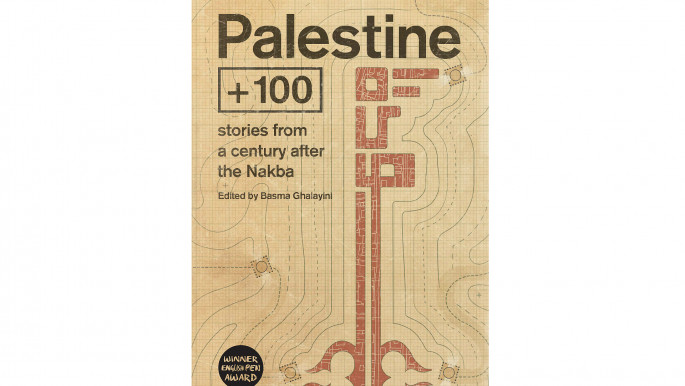 |
|
| Read The New Arab's review here |
Palestinians are often writing about the past or the present, so this collection of short science fiction stories by 12 Palestinian writers is the first of its kind.
With contributions from Saleem Haddad, Ahmed Masoud, Selma Dabbagh and more, Palestine +100's stories are based on the premise of what Palestine would look like in 2048 – a century after the tragedies and trauma of The Nakba.
The House of Youssef – Yumna Kassab
The House of Youssef is a collection of short stories that evolve around Lebanese migrants living in the suburbs of western Sydney.
Yumna Kassab explores themes of isolation, family and community, and nostalgia for the home country. House of Youssef was recently shortlisted for the 2020 Victorian Premier's Literary Award for Fiction, which puts Kassab in the running for the single most valuable literary award in Australia.
The Pact We Made – Layla AlAmmar
Layla AlAmmar's debut novel tells the story of Dahlia, who is at a crossroads in her life as she stares down the barrel of her 30th birthday – the age when a Kuwaiti woman from a good family is past her prime marrying years.
With Dahlia straddling two worlds, The Pact We Made provides a glimpse into the life of a contemporary woman and her place within Arab culture.
Memoirs / Essays
Our Women on The Ground – ed. Zahra Hankir
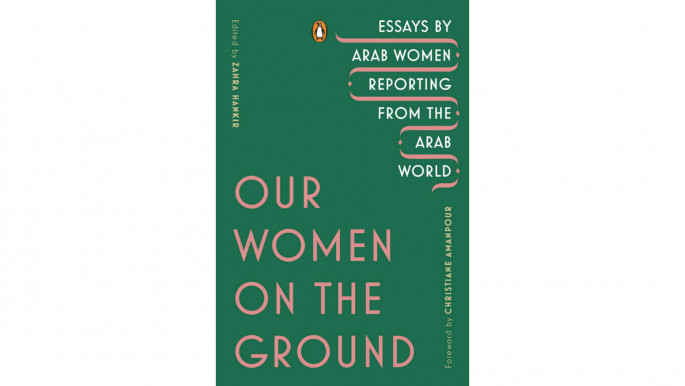 |
|
| Read The New Arab's review here |
This collection of personal essays from 19 Arab sahafiyat – female journalists – has attracted much critical acclaim, and rightly so.
Featuring contributions from Lina Attalah, Nada Bakri, Hind Hassan, Hwaida Saad, newly-appointed Financial Times editor Roula Khalaf and many more, each heartfelt chapter sheds light on what it's like to report on the Arab world as Arab women, smashing stereotypes in a field of journalism that is dominated by male journalists and male perspectives.
Fridays With My Folks – Amal Awad
Amal Awad's life changed when her father was diagnosed with kidney failure. On a mission to help her father and support her mother, she began spending every Friday with her parents.
This confronted her with gaps in discussion around ageing and sickness, and how it affects the afflicted and those around them.
While Awad's heartfelt book stems from personal experiences, it expands to a wider, universal and timely discussion about health, ageing, coping and hope.
Find Another Dream – Maysoon Zayid
If you're looking for a book to listen to while commuting to work or taking road trips, Find Another Dream by Maysoon Zayid is one you can't go past.
A Palestinian Muslim girl from Jersey with cerebral palsy, listeners are taken on a hilarious, poignant journey of Zayid's failures and successes.
The audiobook format works perfectly for Zayid, an established comedian, who comes across has a natural, sincere and funny storyteller.
 |
A Palestinian Muslim girl from Jersey with cerebral palsy, listeners are taken on a hilarious, poignant journey of Zayid's failures and successes |  |
Arab, Australian, Other: Stories on Race and Identity – ed. Randa Abdel-Fattah & Sara Saleh
This anthology of 25 essays, short memoirs and poems sheds light on the lives of the Arab diaspora in Australia.
With contributions from Ruby Hamad, Sarah Ayoub, Mile Franklin Award finalist Michael Mohammed Ahmad and more, each chapter explores family, culture, history, grief, isolation, romance, sexuality, belonging and identity. Collectively, they provide readers with a microcosm of the diversity of the Arab world.
(*Disclaimer: the author of this article has a chapter in this book)
Unicorn: The Memoir of a Muslim Drag Queen – Amrou Al-Kadhi
This heartfelt memoir from Amrou Al-Kadhi, who uses the pronoun "they", takes readers on a journey from their years at Eton and Cambridge, to their discovery of drag and boyfriends and the creation of Glamrou – their acerbic and taboo-busting onstage persona.
But ultimately, Al-Kadhi writes that their story is about their mother: "It's the journey of how we lost and found each other, about forgiveness, understanding, hope – and the life-long search for belonging."
When We Were Arabs: A Jewish Family's Forgotten History – Massoud Hayoun
When We Were Arabs is a nuanced account of Massoud Hayoun's reclamation of his family's Jewish Arab identity.
It brings to life the stories if his grandparents' lives in Egypt, Tunisia and Palestine before ethnic identity was mangled for political ends, and challenges readers' preconceptions of what it means to be an Arab and what it means to be Jewish.
The Wrong End Of The Table – Ayser Salman
The premise of Ayser Salman's memoir is deftly summed up in her book's subtitle: "A mostly comic memoir of a Muslim Arab American woman just trying to fit in."
Moving with her family when she was young from Iraq to Ohio, Salman found that American life occasionally placed her in positions that ran contrary to her religious beliefs and cultural traditions.
Ayser also writes how US politics post-9/11 affected her life, and candidly writes about her dating experiences and friendships.
 |
Moving with her family when she was young from Iraq to Ohio, Salman found that American life occasionally placed her in positions that ran contrary to her religious beliefs and cultural traditions |  |
Unveiled: How Western Liberals Empower Radical Islam – Yasmine Mohammed
Unveiled is half a thriller about Canadian-Egyptian Yasmine Mohammed's violent, fundamentalist stepfather and marriage to an al-Qaeda member and how she fought her way to freedom, and half the story of how Western liberals often perpetuate Muslim stereotypes and inexplicably celebrate the oppression of Muslim women.
While the book may be confronting for some, Mohammed strives to show that her personal story is simply an illustration of a general trend around the world.
Politics / Social Commentary
Justice for Some: Law and the Question of Palestine – Noura Erakat
As the title suggests, Justice for Some – by prominent legal commentator Noura Erakat – unravels the use and misuse of international law when it comes to Palestine.
Erakat's consistently levelled critique and clear legal analysis goes back as far as Britain's Balfour Declaration in 1917, right through to the modern era with the ongoing siege of Gaza and illegal settlements in the West Bank.
The Seven Necessary Sins for Women & Girls – Mona Eltahawy
Prominent Egyptian feminist Mona Eltahawy's latest book is a manifesto for all women and girls (including nonbinary and trans women) which identifies the seven "sins" needed to dismantle patriarchal power structures around the world: anger, attention, profanity, ambition, power, violence and lust.
Eltahawy weaves personal stories of violence and protest with stories of other women, linking them to data and historical contexts – to show that women should strive to scare the patriarchy in order to gain the space they deserve, rather than appease or work with it.
White Tears/Brown Scars – Ruby Hamad
In 2018, Ruby Hamad published an article in The Guardian titled "How white women use strategic tears to silence women of colour". The article went viral on social media, and Hamad was met with both worldwide praise and condemnation.
Refusing to back down, Hamad's debut book expands on the theories in that article by providing an in-depth analysis into the reasons behind this abuse of power by white women, for which women of colour almost always pay the price.
 |
Hamad's debut book expands on the theories in that article by providing an in-depth analysis into the reasons behind this abuse of power by white women, for which women of colour almost always pay the price |  |
The Greater Freedom: Life as a Middle Eastern Woman Outside the Stereotypes – Alya Mooro
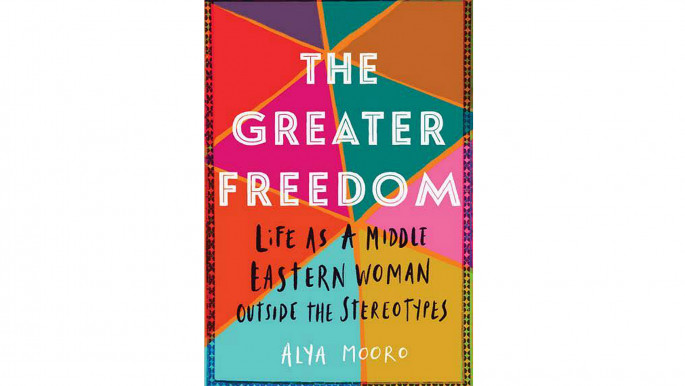 |
|
| Read The New Arab's review here |
Part memoir, part social commentary, Alya Mooro weaves together personal anecdotes as an Egyptian-born Londoner with research, interviews and statistics to explore everything from beauty standards to behaviour, relationships, religion and more.
The Greater Freedom unpacks the cultural and societal expectations that Arab women face, while also challenging preconceptions about them.
Assad Or We Burn the Country: How One Family's Lust for Power Destroyed Syria – Sam Dagher
Pulitzer Prize-nominated journalist Sam Dagher has been praised for his detailed and impeccably-sourced account of the rise of the Assads and the Syrian civil war.
Dagher himself was the only journalist for a major Western newspaper based permanently in Damascus between 2012-2014, before he was thrown out.
Drawing on his experience and exclusive interviews while there, Dagher unravels the family behind the destruction of a country and the chaos of an entire region.
We Need New Stories: Challenging the Toxic Myths Behind Our Age of Discontent – Nesrine Malik
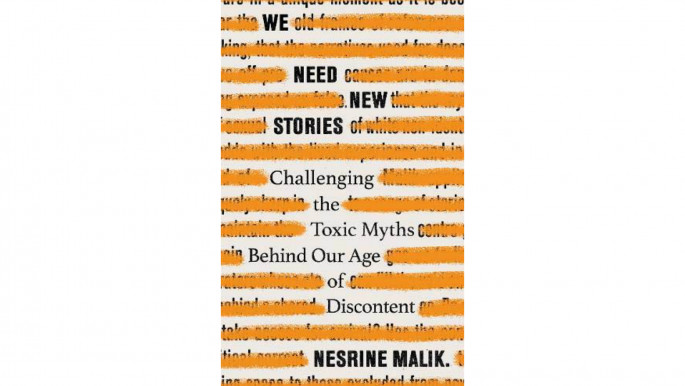 |
|
| Read The New Arab's review here |
We Need New Stories aims to challenge six modern myths used across Western culture to discredit progressive causes in various ways and how they form the root of political and social divisions.
Through analysis of how these myths work, Nesrine Malik provides a manifesto for arguing against them and finding new narratives that might lessen or prevent some of their consequences.
Syria After the Uprisings: The Political Economy of State Resilience – Joseph Daher
Eight years since Syria became embroiled in one of most brutal civil wars in modern history, Joseph Daher analyses the resilience of the Assad regime and the failings of the uprising, while also highlighting the counter revolutionary processes that have been undermining the uprising.
Writing from a socialist-centric perspective, Daher captures the developments in Syria until earlier this year.
Notable mentions
If you're into young adult fiction, check out You Must be Layla from Yassmin Abdel-Magied, or Aminah Mae Safi's queer-friendly Tell Me How You Really Feel.
For fans of poetry, you should look into picking up a copy of Omar Sakr's highly-acclaimed The Lost Arabs, or The Twenty-Ninth Year by Hala Alyan.
On the other hand, while these anthologies feature contributions from a diverse set of poets, both were edited by British-Egyptian playwright and poet Sabrina Mahfouz: Smashing It: Working Class Artists on Life, Art and Making It Happen and Poems from a Green and Blue Planet.
Since this article focused on books published in English first, it'd be foolish to overlook books by Arab authors that were translated into English this year.
Highlights include The Sea Cloak by Nayrouz Qarmout, Adèle by Leila Slimani, Mama Hissa's Mice by Saud Alsanousi, The Old Woman and the River by Ismail Fahd Ismail, Thirteen Months of Sunrise by Rania Mamnoun and All That I Want to Forget by Bothayna Al-Essa.
There's also The Quarter, a new book from Nobel Prize-winning Egyptian author Naguib Mahfouz, published posthumously, and Celestial Bodies by Jokha Alharthi, which – although it was translated into English last year – won the 2019 Man Booker International Prize.
Elias Jahshan is an editor and freelance writer based in London. He is a contributor to Arab, Australian, Other: Stories on Race & Identity, out now through Picador.
Follow him on Twitter: @Elias_Jahshan
The New Arab Book Club: Click on our Special Contents tab to read more book reviews and interviews with authors:




